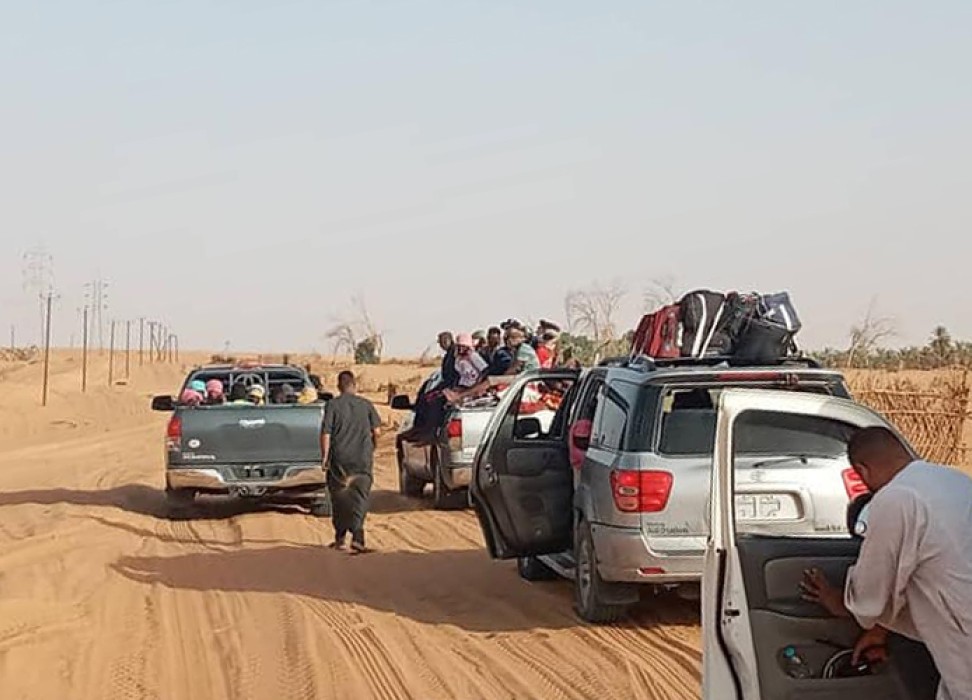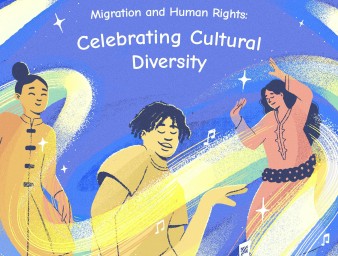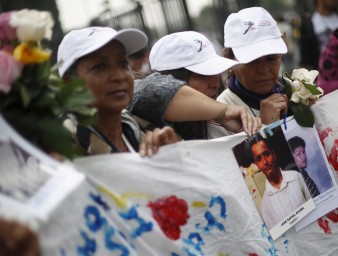Report highlights unsafe and undignified expulsion of migrants from Libya
25 November 2021

Migrants in Libya are ‘routinely at risk of arbitrary or collective expulsion,’ according to a new report issued this week by UN Human Rights.
Such expulsions are occurring without an individual assessment of their circumstances or protection needs.
The report, Unsafe and Undignified: The forced expulsion of migrants from Libya, uses official data provided by the Libyan authorities, together with remote monitoring and analysis undertaken between January 2019 and December 2020.
“Thousands of migrants arrive in Libya each year, in search of safety and dignity for themselves and their families,” says Carolina Hernandez, UN Human Rights’ adviser on migration and human rights. “Yet they are often trapped in Libya by an approach to migration and border management that is focused on preventing their arrival to Europe.”
While no official government data exists, there are estimated to be more than 600,000 migrants comprising more than 44 nationalities in Libya, many of whom are undocumented and in extremely vulnerable situations.
Migrant expulsions on the rise
Contrary to Libya’s international human rights obligations, Libyan law criminalises irregular entry, exit and presence in the country and imposes harsh sentences of mandatory detention, fines and expulsion from the country for any migrant found in an irregular situation.
While in practice forced expulsions from Libya have been exceptionally rare in recent years, the report documents how they appear to be on the rise, with some Libyan officials touting plans to deport “more people faster than ever.” These include expulsions from Libyan detention centres, often under so-called “emergency procedures” linked to the COVID-19 pandemic and other “contagious diseases” where migrants face discriminatory profiling.
According to official statistics published by the Libyan Ministry of the Interior’s Benghazi branch of the Directorate for Combatting Illegal Migration (DCIM), some 7,500 migrants were expelled in 2019 and 2020.
Independent monitoring by the UN and civil society however indicates that these figures may be a significant undercount and do not account for expulsions being carried out by de-facto Libyan authorities.
Lack of due process and procedural guarantees
Large-scale expulsions are occurring without assessment of individual cases, and migrants are frequently denied access to legal assistance, interpreters, and other critical procedural safeguards, says the report, including the ability to effectively challenge the lawfulness of the return.
“Such returns, outside due process of law, fail to uphold the prohibition of collective expulsion and are in violation of the principle of non-refoulement,” explains Hernandez.
Use of arbitrary arrest and detention
The report also highlights how Libya’s detention regime is a critical tool in carrying out forced expulsions from the country and raises serious concerns about the continued use of arrest and detention in Libya, noting that the system is ‘fundamentally arbitrary.’
Thousands of migrants each year are arrested and placed in sub-standard detention centres, where they are subjected to a range of human rights violations including torture, sexual violence, enforced disappearance, trafficking, and the routine denial of their right to adequate food, water and medical care.
UN Human Rights is concerned that a growing number of deportations appear to be taking place from a patchwork of new, re-furbished or re-branded “Gathering and Return Centres” across the country, under the control of Libyan authorities.
In some cases, detention centres previously closed due to widespread human rights violations committed against migrants are among those being re-opened. And new detention centres were also opened that are directly under the control of armed groups affiliated to the Government of National Unity, raising serious concerns about the safety of migrants and accountability for violations committed against them.
Forced return journeys: dangerous and undignified
The report further details that Libyan authorities are not acting to adequately ensure the safety and welfare of migrants during forced return operations, nor are they effectively coordinating with authorities in countries to which the migrants are expelled.
During one expulsion of nearly 900 men and women from al-Kufra in April 2020, migrants reported being driven across hundreds of miles of desert and being left in remote border towns in Chad or Sudan. They had insufficient food, water and shelter, and were forced to quarantine in an open lot due to COVID-19 related restrictions.
“Migrants tell us they have been given no choice, despite being told this process is ‘voluntary,’” continues Hernandez. “Many are essentially being abandoned in the desert. They are exposed to severe psychological distress, having either directly experienced or witnessed exploitation by forced labour, beatings, torture or sexual violence.”
Lack of access to justice
Despite these serious concerns, UN Human Rights is not aware of one single legal case filed in Libya from 2019-2020 by or on behalf of migrants challenging, for example, the lawfulness of their expulsion, the use of arbitrary detention to enforce their removal, or claims of mistreatment during the removal process.
There are also no known formal complaints mechanisms within DCIM for such claims to be heard, and an absence of access for independent monitoring of return procedures, including by the United Nations in Libya.
Against this background, the report outlines a number of recommendations including the immediate cessation of arbitrary and collective expulsions. It calls for a ‘fundamental rethink’ of the current approach to migration and border governance, and more due diligence in the provision of operational, financial and capacity-building support to the Libyan government.
Decriminalisation of irregular migration in Libya must be an urgent priority, says the report, and pathways for safe migration in the region must be expanded, particularly for migrants in vulnerable situations, including opportunities for regularization and the extension of residence and work permits.



